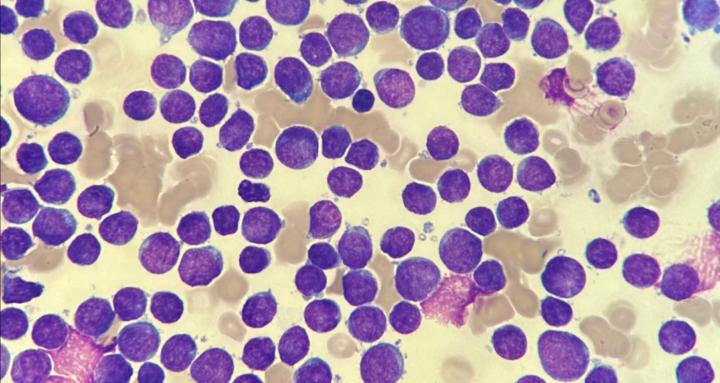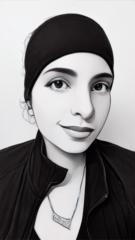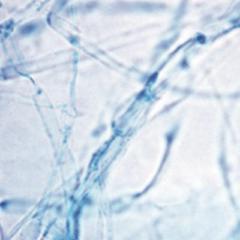
Write something
You’re At The Finish Line, But Want To Give Up? Oh HECK NO.
Greetings my Little Gang of Nasties 😈😜 I want you to really sit with this for a moment: many, if not all of you are literally at the finish line with this exam. This test could be the difference between: - Keeping your job or losing it - Supporting your children or giving them a better life - Carrying the stress of uncertainty or finally exhaling when you see that PASS at the end of the screen I know this is A LOT of material. I know it feels impossible some days. You’re studying while juggling kids, spouses, jobs, and all the other ways life is lifing. And I see you and understand you more than you know. When I was going through school, I worked full-time. I didn’t have the easiest upbringing. But somehow, someway, I kept pushing because I knew the end goal was bigger than the struggle in front of me. And I want you to remember that for yourself: the end goal is bigger. That certification: MLS(ASCP) or MLT(ASCP), is your door to security, opportunity, and pride in knowing you did not quit. For those of you who are spiritual or religious, lean on your faith. Trust in God. Trust in the work you’re putting in. Because when you put faith and action together, doors open. So… DO NOT stop now. Don’t give up when you’re this close. The finish line is waiting for you and I promise, it will all be worth it. If you’re tired of feeling stuck and you’re ready to finally get the support you need… to break down practice questions, understand the exact study strategy, and PASS the ASCP once and for all… join us inside the Inner Circle of Microscope Views today. https://www.skool.com/microscopeviews/about?ref=badbb26c40a147eea94634972a25414a This is your time. Let’s get it. Marilyn 🧪👩🏽🔬
1
0
Chemistry Made A LOT Easier and Digestible😋🧪⚗️
Greetings my Little Gang of Nasties 😈😜 Let’s talk about one of the most intimidating sections on the ASCP exam: Chemistry. Well…. I mean all of them are intimidating LMAO! The good news? If you break it down into 4 major content areas and attack them piece by piece, it becomes SIGNIFICANTLY more manageable. Before you begin studying ASCP questions, you should know that each sections tests for Biochemical Theory and Physiology, Test Procedures, Result Correlations and Disease Correlations: 🧪What *exactly* is BIOCHEMICAL THEORY? This is the science behind the molecules you’re testing: - The chemical structure and function of carbohydrates, lipids, proteins, and nucleic acids. - The pathways they move through (e.g., glycolysis, lipid metabolism, protein catabolism). - The reactions enzymes catalyze and how those reactions are measured in the lab. - How different compounds (like bilirubin, cholesterol, glucose) behave in the body and in assays. 👉🏽Basically: “What is this molecule, what does it do, and what happens chemically when we measure it?” 📚 Why this is SUPER HIGH YIELD AND IMPORTANT for the ASCP The ASCP doesn’t just want you to memorize test names. They want you to connect the dots: - Biochemical theory = how the test works (the principle behind the method). - Physiology = why we’re testing it (what’s happening in the patient’s body). - Together = interpret results in the context of disease. For example: - Glucose: Biochemical theory = measured via glucose oxidase method. Physiology = regulated by insulin/glucagon. In diabetes, failure of regulation = high glucose. - AST/ALT: Biochemical theory = enzymatic activity measured with substrate assays. Physiology = normally found inside liver cells. In hepatitis, cells die → enzymes leak into blood. 👉🏽 So when you see “biochemical theory and physiology” on a content outline, read it as: “Understand both how the test works chemically AND why it matters biologically.” 🧪What *exactly* is PHYSIOLOGY?
Microbiology Study Tip: Breakdown Bacteriology, Mycology & Parasitology
Greetings My Little Gang of Nasties! @Tyneatrious King Posed a great question in the group. Since Microbiology is a huge subject, and the smartest way to study is to break it into major categories and then master the distinguishing features of each. Here’s how I’d suggest you prepare on top of utilizing using MediaLab/LabCE or the ASCP BOC Exam Simulator questions to reinforce the theory: 🦠🧫🧪 BACTERIOLOGY Focus Areas: - Gram-positive vs Gram-negative (cell wall structure, staining, antibiotic susceptibility) - Morphology (cocci vs. bacilli) - Biochemical reactions (Catalase, coagulase, oxidase, TSI, etc.) - Pathogenic mechanisms (toxins, virulence factors) - Clinically important bacteria (Staphylococcus, Streptococcus, Enterobacteriaceae, Non-Fermentative Bacilli, Mycobacteria, etc.) Study Tips: - Master the Gram stain flow chart. - Learn “differentiating tests:” the one test that separates similar bugs (e.g., catalase for Staph vs Strep, coagulase for S. aureus vs coagulase negative staph). - Practice with TSI and other biochemical slants until interpretation is second nature. 🍄 🍄🟫🥐🥖🍞 MYCOLOGY Focus Areas: - Yeasts vs molds vs dimorphic fungi - Microscopic morphology (hyphae, spores, budding patterns) - Fungal culture characteristics (agars, colors, specific characteristics on the plate) - Clinically relevant fungi (Candida, Cryptococcus, Aspergillus, Histoplasma, Blastomyces, Coccidioides, etc.) - Stains (India ink, KOH prep, silver stain) Study Tips: - Compare systemic dimorphic fungi side-by-side (location, morphology, diseases). - Use flashcards with images of fungal structures, the ASCP is often image-heavy! - Group fungi by disease type: superficial (tinea), subcutaneous (sporotrichosis), systemic (Histoplasma), opportunistic (Candida, Aspergillus). 🦟🪲🪳🕷️ PARASITOLOGY Focus Areas: - Protozoa vs helminths - Life cycles (hosts, vectors, transmission)*** INCREDIBLY IMPORTANT - Common parasites and their disease states (Giardia, Plasmodium, Toxoplasma, Entamoeba, Ascaris, Strongyloides, Schistosoma, etc.) - Lab ID (ova, trophozoites, cysts in stool; blood smears for malaria; serology - Again, ASCP is IMAGE HEAVY)
📚 FREE RESOURCE DROP — MLS Review Book by Robert Harr
Hellooooo my little Gang of Nasties!😈😜 If you’ve been feeling overwhelmed about where to even start with studying for the ASCP exam — don’t trip. I got you. This is one of the most widely used study resources out there AND single handedly the reason why I passed my MLS(ASCP) exam: The Medical Laboratory Science Review Book by Robert Harr (PDF version). 🧪 It’s packed with: - Review questions by subject - High-yield explanations - Content that closely mirrors what you’ll see on the ASCP exam (Both MLS and MLT) 📌 Use it to: - Track weak areas - Practice daily questions - Get used to ASCP-style phrasing (yes, the ones that feel like they’re intentionally tryna trick you 😭) Whether you’re just starting or reviewing one section at a time — this belongs in your toolkit. 🔗 Download it here AND BOOKMARK IT on your phone and other devices! https://samicrobiology.wordpress.com/wp-content/uploads/2019/01/mls-review.pdf ✅ Already feeling stuck? Or not sure how to use this resource effectively? Book a 1:1 call with me and I’ll help you map out a study plan that works for your schedule, learning style, and brain. 📅 https://calendly.com/microscopeviewsyt/45min Let’s get YOU ALL certified. We not doing this alone. 💪🏾🧬
Upcoming Exam Dates (Fall 2025) 🥼🧪
Greetings my Little Gang of Nasties, We have a request since there are A LOT of us who have scheduled our ASCP exam for these next few months! 👉Drop your OFFICIAL TEST DATE below so we can see who's taking their exam.
1-30 of 32

skool.com/microscope-views-free-6601
🧪🔬Helping Students Effectively Study For & Pass The ASCP Exam
Powered by





